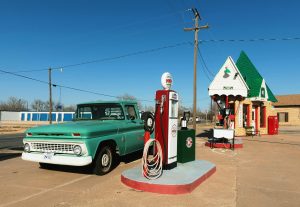Can you pump your own gas in New Jersey ?No, you cannot pump your own gas in New Jersey due to the state’s 1949 ban on self-service pumps, with gas station owners facing fines of $250 for a first offense and $500 for subsequent violations if drivers are caught handling the gas pump.
When traveling to New Jersey, many visitors and even locals may wonder about the state’s unique laws regarding gas stations.
One of the most frequently asked questions is whether you can pump your own gas in the Garden State.
New Jersey stands out for its strict regulations on fuel dispensing, a practice that dates back to the mid-20th century.
While many states in the U.S. have embraced self-service gas stations, New Jersey has maintained a law that requires gas station attendants to handle the task of filling up your tank.
This law, originally enacted in 1949, reflects New Jersey’s commitment to safety and job creation.In this article, we will delve into the details of this law, explore its historical context, and address some frequently asked questions about pumping gas in New Jersey.
Can You Pump Your Own Gas In New Jersey
The History Behind New Jersey’s Gas Pumping Law
The law prohibiting self-service gas stations in New Jersey was established to enhance safety and employment opportunities. At the time of its inception, the primary concern was the safety of handling gasoline, which was believed to be hazardous to individuals untrained in proper dispensing techniques.
Over the decades, this regulation has become a distinctive feature of New Jersey’s approach to consumer safety and employment.
In addition to safety considerations, the law was also intended to provide jobs for gas station attendants. During a period of economic recovery post-World War II, creating employment opportunities was a crucial goal. The gas station attendant job not only provided a steady income but also served as a symbol of economic stability and consumer protection.
Despite the advent of modern self-service gas stations in many parts of the country, New Jersey’s law has remained largely unchanged. Various attempts to amend or repeal the law have sparked debates about convenience, cost, and personal choice. However, the law’s enduring presence underscores New Jersey’s unique stance on fuel dispensing.
The Current Status of Gas Pumping Laws in New Jersey
As of the latest updates, New Jersey’s law requiring gas station attendants to pump gas for customers is still in effect. While there have been legislative proposals and public discussions about allowing self-service options, none have successfully overturned the existing law. The state’s decision to maintain this regulation reflects a commitment to the principles of safety and employment.
In practice, this means that if you’re driving in New Jersey, you should expect to have an attendant pump your gas. This rule applies to all gas stations within the state’s jurisdiction, ensuring a consistent experience for all motorists.
It’s worth noting that some gas stations may also offer additional services, such as windshield cleaning or checking oil levels, which are handled by the attendants.
Pros and Cons of New Jersey’s Gas Pumping Law
Like any regulation, New Jersey’s law on gas pumping has its proponents and critics. Understanding both sides of the argument can provide a more comprehensive view of the situation.
Pros:
- Enhanced Safety: The law is designed to reduce the risk of accidents and injuries associated with handling gasoline.
- Job Creation: It provides employment opportunities for gas station attendants, contributing to the local economy.
- Convenience for Some: For those who prefer not to pump their own gas, this law ensures a hassle-free experience.
- Regulated Fuel Dispensing: Attendants are trained to handle fuel safely, potentially reducing the risk of spills or accidents.
- Additional Services: Attendants often offer extra services like windshield cleaning, which adds value to the customer experience.
- Consistent Experience: Visitors to New Jersey can expect a uniform service experience at gas stations.
Cons:
- Potentially Higher Costs: Some argue that the need for attendants can lead to higher fuel prices compared to self-service stations.
- Inconvenience During Peak Hours: At busy times, having to wait for an attendant can be frustrating for drivers in a hurry.
- Limited Flexibility: The law restricts drivers’ ability to quickly refuel their vehicles, particularly in remote areas.
Fines for Pumping Your Own Gas in New Jersey
New Jersey has strict regulations regarding the self-service of gasoline, primarily enforced to enhance safety and provide job opportunities. The law, which dates back to 1949, mandates that only trained gas station attendants are permitted to pump gas for customers. Violating this law by pumping your own gas in New Jersey can result in significant fines for gas station owners.
Fines and Penalties:
- First Offense: If drivers are caught pumping their own gas in New Jersey, the gas station owner can be fined up to $250. This initial fine serves as a deterrent to ensure compliance with the state’s regulations.
- Subsequent Violations: For any subsequent offenses of pumping your own gas in New Jersey, the fines increase significantly. Gas station owners can face fines of up to $500 for each additional violation. This escalation in penalties underscores the importance of adhering to the law.
Why These Fines Exist:
The fines for pumping your own gas in New Jersey are intended to enforce the state’s unique stance on gas pumping, which prioritizes safety and employment. By imposing financial penalties on gas station owners, the state ensures that these regulations are taken seriously and that gas stations remain compliant with the law.
Enforcement:
State inspectors and local authorities are responsible for monitoring compliance with the regulation against pumping your own gas in New Jersey. They conduct regular checks to ensure that gas stations adhere to the law and that customers are not pumping their own gas.
Impact on Gas Station Owners:
These fines can have a considerable impact on gas station owners, particularly if violations occur repeatedly. To avoid these penalties for allowing customers to pump their own gas in New Jersey, gas station owners must train their staff adequately and ensure that attendants are always available to assist customers. Compliance with this law not only avoids fines but also supports the intended goals of safety and job creation.
Can You Pump Your Own Gas In New Jersey FAQs
1. Why can’t I pump my own gas in New Jersey?
New Jersey’s law requires gas station attendants to pump gas for safety and employment reasons. The regulation, in place since 1949, aims to reduce accidents and provide jobs for local residents.
2. Are there any exceptions to the law?
As of now, there are no exceptions to the law. All gas stations in New Jersey are required to have attendants pump gas for customers.
3. Can I pay for gas at the pump in New Jersey?
No, in New Jersey, you typically pay for your gas inside the convenience store or at the gas station’s cashier counter. Self-service payment options at the pump are not available due to the state’s regulations.
4. Has there been any recent legislation to change this law?
There have been legislative proposals and discussions about allowing self-service gas stations, but none have successfully changed the law. The regulation remains in effect as of the latest updates.
5. How does this law impact gas prices in New Jersey?
The presence of gas station attendants can contribute to slightly higher fuel prices compared to self-service stations. However, this varies by location and gas station.
6. What should I expect when visiting a gas station in New Jersey?
When visiting a gas station in New Jersey, you can expect an attendant to pump your gas. They may also offer additional services such as windshield cleaning. Payment is typically made inside the store or at the cashier counter.
7. Are there any other states with similar gas pumping laws?
Yes, Oregon is another state with regulations requiring attendants to pump gas. However, Oregon has also implemented some self-service options in certain areas.
Conclusion
New Jersey’s distinctive gas pumping law reflects a long-standing commitment to safety and job creation. Despite the evolution of self-service technology and the debates surrounding this regulation, the law remains a defining characteristic of the state’s approach to fuel dispensing.
Visitors to New Jersey should be prepared to have their gas pumped by an attendant and can expect a consistent service experience across the state.
For those interested in exploring this topic further or considering a visit to New Jersey, understanding the local regulations can enhance your travel experience.
If you have any more questions or need assistance with your travel plans, don’t hesitate to reach out or consult local resources for the most up-to-date information.

